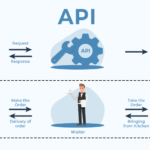The water diet, also known as the water fasting diet, is a type of fasting diet in which an individual consumes only water for a specified period of time. This type of diet has been practiced for centuries and has been used for various health purposes, including weight loss, detoxification, and improved mental clarity. In this article, we will discuss the water diet in detail, including its benefits, risks, and how to do it safely.
What is the Water Diet?
The water diet is a type of fasting diet in which an individual consumes only water for a set period of time. This period can range from a few days to several weeks, depending on the individual’s goals and overall health. During this time, the individual does not consume any solid foods, only water.
Water fasting is believed to have originated in ancient times when people would fast for spiritual reasons. In modern times, water fasting has become popular for its potential health benefits. It is said to help with weight loss, detoxification, and mental clarity.
Benefits of the Water Diet
- Weight Loss: One of the main reasons people try the water diet is for weight loss. Since an individual is not consuming any solid foods during this period, their body will burn through its fat stores for energy. This can result in significant weight loss.
- Detoxification: Another benefit of the water diet is its potential to detoxify the body. During a water fast, the body is able to eliminate toxins that have accumulated over time. This can help improve overall health and wellbeing.
- Improved Mental Clarity: Many people who try the water diet report improved mental clarity and focus. This is believed to be due to the elimination of toxins in the body and the increased production of ketones, which are a type of molecule that the body produces when it is in a state of fasting.
- Reduced Inflammation: Water fasting has been shown to help reduce inflammation in the body. This can lead to a reduction in chronic pain and other inflammatory conditions.
Risks of the Water Diet

- Dehydration: Since an individual is only consuming water during this period, there is a risk of dehydration. It is important to drink plenty of water and monitor hydration levels closely.
- Nutrient Deficiencies: Since an individual is not consuming any solid foods during a water fast, there is a risk of nutrient deficiencies. It is important to consult with a healthcare professional before starting a water fast to ensure that nutrient needs are being met.
- Muscle Loss: During a water fast, the body will burn through its fat stores for energy. However, it can also begin to break down muscle tissue for energy. This can lead to muscle loss and weakness.
- Increased Risk of Infections: Since the immune system is weakened during a water fast, there is an increased risk of infections. It is important to practice good hygiene and avoid contact with sick individuals during this period.
How to do the Water Diet Safely

- Consult with a Healthcare Professional: Before starting a water fast, it is important to consult with a healthcare professional to ensure that it is safe for you to do so.
- Start Slowly: If you are new to water fasting, it is important to start slowly. Begin by fasting for a few hours and gradually increase the length of your fast over time.
- Stay Hydrated: Drink plenty of water during your fast to prevent dehydration.
- Monitor Nutrient Levels: It is important to monitor your nutrient levels during your fast to ensure that you are not becoming deficient in any essential nutrients.
- End the Fast Gradually: When ending your fast, it is important to do so gradually. Begin by consuming small amounts of solid foods and gradually increase your intake over time.
Conclusion
The water diet, also known




